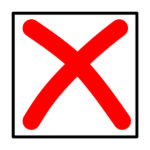02/01/2023
HB 2004 VOTE:NO
In CommitteePublic Hearing03/16/2023 1:00pm HR C
Status (overview) of bill:https://olis.oregonlegislature.gov/liz/2023R1/Measures/Overview/HB2004
Committee assigned to bill: https://olis.oregonlegislature.gov/liz/2023R1/Committees/HRULES/Overview
HB 2004 establishes ranked choice voting as voting method for selecting winner of nomination for and election to offices of President of United States, United States Senator, Representative in Congress, Governor, Secretary of State, State Treasurer and Attorney General. Moves election for Commissioner of Bureau of Labor and Industries to general election, where election is conducted using ranked choice voting
Both bills authorizes cities, counties, metropolitan service districts and local government and local service districts to elect to use ranked choice voting to nominate or elect candidates for relevant offices. SB 506 requires Secretary of State to create and staff division to assist counties that adopt ranked-choice voting in purchasing compatible computers, voting machines and vote tally systems, which would be expensive for counties. And the state’s election computer system is hackable admitted by the AG, so it opens up another level of fraud.
Rank-choice voting is an instant runoff system that neutralizes the people’s will. The ballots continue to be counted until one candidate has the majority of votes. Too many choices distorts the method and may not reflect voters’ choice. There is total reliance on computer programming, without a way to audit the results.
Some say it incentivizes candidates to appeal to a broader base of voters, but it has been shown to reduce voting by demanding voters think beyond their first choice. That causes a strategy in voting that is complicated and confusing. It eliminates the primary when weak candidates are eliminated, so vetting candidates fully is the challenge for an informed electorate.

